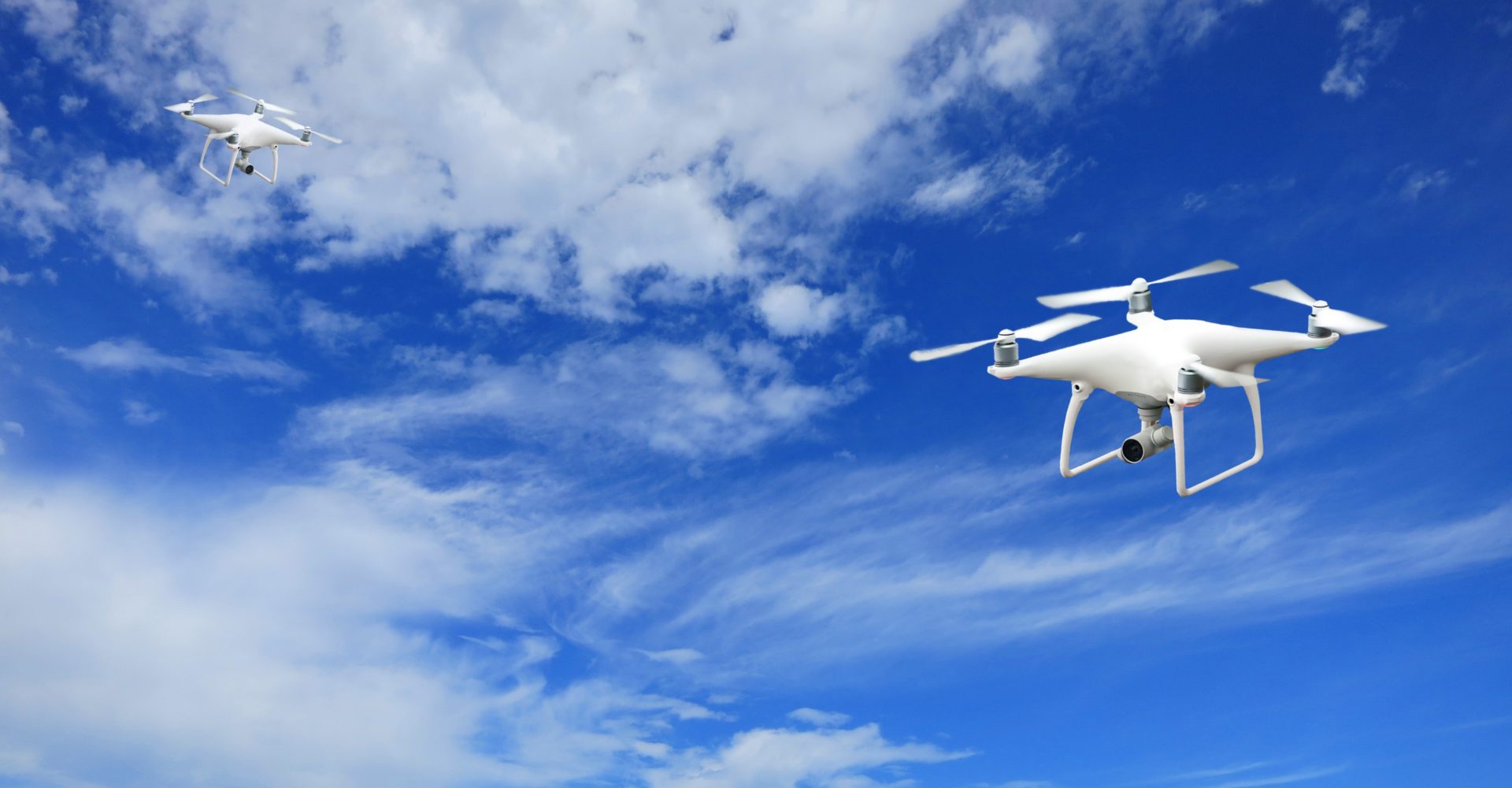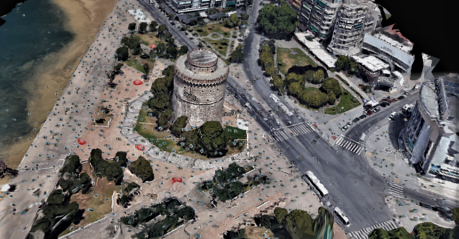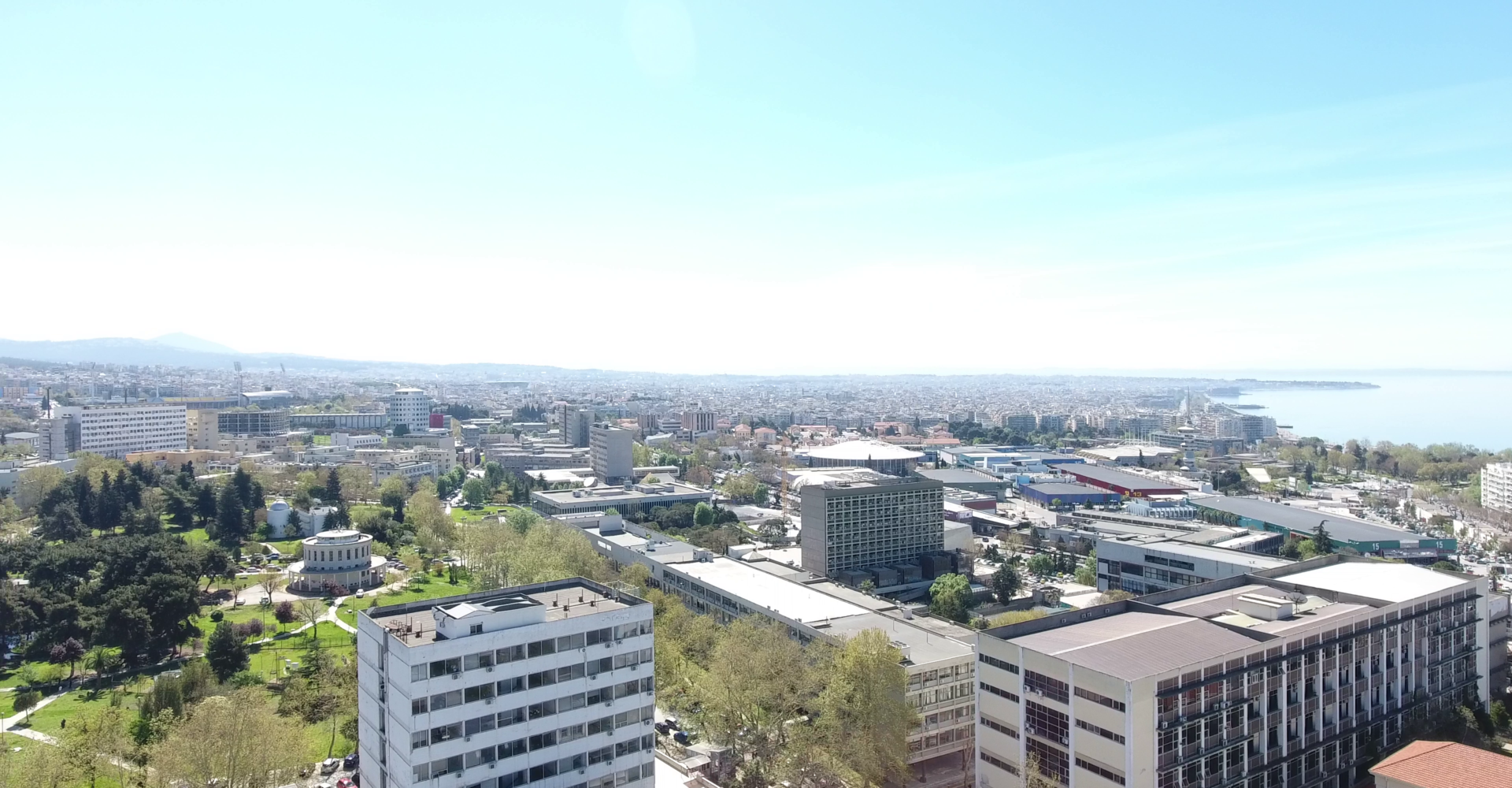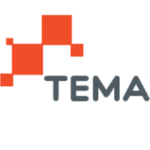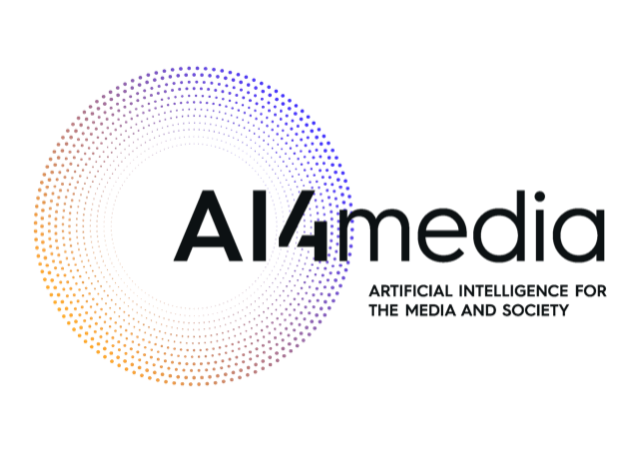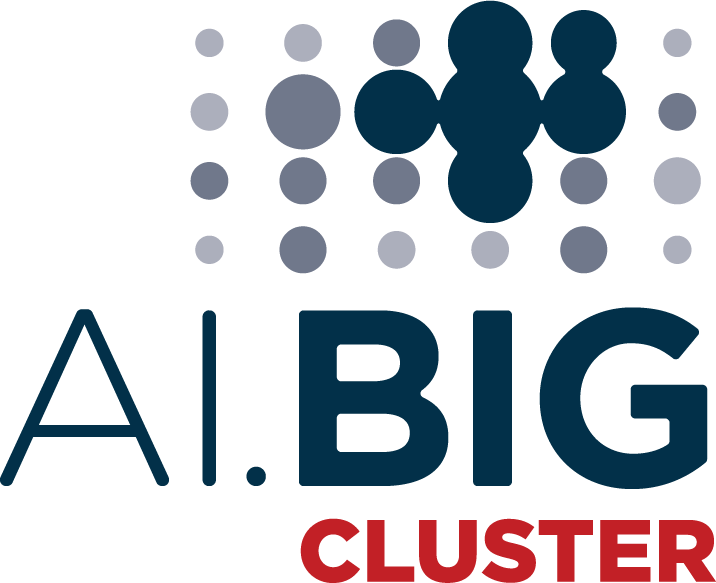SHORT DESCRIPTION
This Summer School offers a three-day short course that delivers an in-depth exploration of programming tools and techniques for addressing a variety of computer vision and deep learning challenges. The course focuses on the fundamentals of deep learning and its applications in Natural Disaster Management. The short course consists of three parts (A, B, C), each having lectures and programming workshops with hands-on lab exercises.
This course presents recent deep learning and computer vision advances as applied in Natural Disaster Management (Horizon Europe TEMA R&D project).
Part A will focus on Deep Learning and GPU programming. The lectures of this part provide a solid background on Deep Neural Networks (DNN) topics, notably convolutional NNs (CNNs) and deep learning for image classification and 2D object tracking. Two programming workshops will take place. The first one will be on image classification using CNNs, while the second how to use OpenCV (the most used library for computer vision) for target tracking.
Part B lectures will provide a basic understanding of two well-known methods in computer vision, object detection and image semantic segmentation. Participants will gain insights into how these methods address real-world challenges. Accompanied by programming courses, attendees will learn not only to comprehend but also to apply these techniques effectively. Furthermore, the programming lectures will demonstrate the training of deep neural networks on specialized datasets for Natural Disaster Management, such as fire detection and flood segmentation.
Part C will explore the application of Natural Language Processing (NLP) in Natural Disaster Management (NDM), complemented by a programming workshop focused on analyzing text data from social media platforms, such as Twitter, using deep neural networks (DNNs). Additionally, a lecture on the explainability of computer vision methods will offer participants insights into how these algorithms function and identify which parts of the input image are crucial for their decisions. In the practical component of this lecture, visualization techniques based on input images will be employed to illustrate what information is deemed significant by the neural networks.
This year, we’ve introduced an exciting research programming challenge to our workshop, designed to offer participants a hands-on experience with deep learning in the context of natural disaster management. Every participant will have access to our comprehensive dataset, along with pretrained models and detailed evaluation results. Our team will demonstrate how these models are trained and how we can evaluate their performance. Through this challenge, participants will acquire a foundational understanding of the initial steps necessary to embark on research within the field of deep learning for natural disaster management. The ultimate goal of the challenge is to encourage participants to embark on their own research journey, modifying and enhancing the networks to surpass the performance of the baseline models we provide. It’s a unique opportunity to apply theoretical knowledge in a practical setting, fostering a deeper understanding of how deep learning can be utilized to make significant contributions in this critical area.
Lectures and programming workshops will be in English. PDF files will be available at the end of the course.
Part A (8 hours) Deep Learning for Autonomous Systems
- Deep neural networks – Convolutional NNs.
- 2D Object Tracking in Embedded Systems.
- Programming workshop on Deep neural networks – Convolutional NNs.
- Programming workshop on 2D Object Tracking in Embedded Systems.
Part B (8 hours) Computer Vision applications in Natural Disaster Management
- Real Time Object Detection.
- Real-Time Image Segmentation.
- Programming workshop on Real Time Object Detection.
- Programming workshop on Real-Time Image Segmentation.
Part C (8 hours) Deep Learning applications in Natural Disaster Management
- Natural Language Processing.
- Explainability in Computer Vision applications.
- Programming workshop on Natural Language Processing.
- Programming workshop on Explainability methods in Computer Vision.
WHEN?
27 – 29 August 2024.
WHERE?
All lectures and workshops will be delivered on-site in KEDEA building.
You can find additional information about the city of Thessaloniki and details on how to get to the city here.
HOW?
Each registrant will use her/his own computer for a) participating in the course and b) for running the programming exercises. A standard PC with a stable internet connection is required. The participants are also required to own a Google account for the workshops exercises.
The course will be delivered in KEDEA building of Aristotle University of Thessaloniki campus (see map above).
PROGRAM
| Date/time* | 27/08/2024 | 28/08/2024 | 29/08/2024 |
| Topic |
Deep Learning for Autonomous Systems |
Computer Vision Applications in Natural Disaster Management |
Deep Learning Applications in Natural Disaster Management |
| 8:00-8:30 | Registration | ||
| LECTURES | LECTURES | LECTURES | |
| 8:30-9:00 | Introduction to Autonomous systems | ||
| 9:00- 10:00 | Deep neural networks – Convolutional NNs | Real Time Object Detection | Natural Language Processing |
| 10:00-11:00 | 2D Object Tracking in Embedded Systems | Real-Time Image Segmentation | Explainability in Computer Vision Applications |
| 11:00-11:30 | Coffee break | ||
| WORKSHOPS | WORKSHOPS | WORKSHOPS | |
| 11:30-13:30 | Programming workshop on Deep neural networks – Convolutional NNs | Programming workshop on Real Time Object Detection | Programming workshop on Natural Language Processing |
| 13:30-14:30 | Coffee break | ||
| 14:30-16:30 | Programming workshop on 2D Object Tracking in Embedded Systems | Programming workshop on Real-Time Image Segmentation | Programming workshop Explainability Methods in Computer Vision |
*Eastern European Summer Time (EEST, UTC + 3 hours)
** This programme is indicative and may be modified without prior notice by announcing (hopefully small) changes in lectures/lecturers.
————————————————————————————————————————————————————————-
REGISTRATION
————————————————————————————————————————————————————————-
GENERAL REGISTRATION
Early registration (till 15/07/2024):
• Standard: 200 Euros
• Reduced registration for young professionals (up to 2 years after graduation): 100 Euros
• Unemployed or Undergraduate/MSc/PhD student*: 50 Euros
Later or on-site registration (after 15/07/2024):
• Standard: 200 Euros
• Reduced registration for young professionals (up to 2 years after graduation): 110 Euros
• Unemployed or Undergraduate/MSc/PhD student*: 60 Euros
After the completion of your payment, please fill in the form below:
SPECIAL REGISTRATION FOR AIDA STUDENTS
AIDA Students (PhD students/candidates or Postdoc researchers belonging to any AIDA member)
On top of the above registration, also enroll on this course using the “ENROLL ON THIS COURSE” button on the AIDA course page, so that this course is included on your AIDA Certificate of Course Attendance upon successful completion of the program.
A certificate of attendance will be provided by AUTH upon successful completion of the course.
ECTS: 3
For the successful completion of the program, the participants should:
Α) have attended more than 70% of the lectures and workshops
Β) have completed the questionnaires with mark at least 5/10.
C) have paid all the tuition fees by 27/08/2024.
Cancelation policy:
- 50% refund for cancelation up to 31/07/2024
- 0% refund afterwards
Every effort will be undertaken to run the course as planned. However, the organizer will be not held liable for any other loss incurred to the registrants.
————————————————————————————————————————————————————————-
PRESENTATION
Presentations and lab notes will be available to the attendees.
TOPICS
Part A (first day, 2 lectures, 2 programming exercises) 27/08/2024
Deep Learning for Autonomous Systems
The first lecture of Part A provides a solid background on the topics of deep neural networks. It is accompanied by a lecture that will aid in understanding how deep neural networks can be applied to real-world problems and applications.
1. Deep neural networks – Convolutional NNs
From multi-layer Perceptrons to deep architectures. Fully connected layers.
Convolutional layers. Tensors and mathematical formulations. Pooling. Training convolutional NNs. Initialization. Data augmentation. Batch Normalization. Dropout. Deployment on embedded systems. Lightweight deep learning.
DNN programming tools (e.g., PyTorch).
2. 2D Object Tracking in Embedded Systems
The 2D Object Tracking in Embedded Systems lecture offers a comprehensive exploration of object tracking techniques specifically tailored for embedded systems. This lecture delves into the intricacies of tracking objects in real-time within resource-constrained environments, where considerations such as limited processing power, memory, and energy consumption play crucial roles. Attendees will gain a deep understanding of optimized algorithms, sensor integration methods, and hardware acceleration techniques designed to achieve efficient and
accurate object tracking in embedded systems. Practical examples and case studies with OpenCV programming will be presented to illustrate the application of these techniques in diverse domains, including robotics, surveillance, and 2 autonomous vehicles, empowering attendees to implement robust and reliable object tracking solutions in their own embedded systems projects.
Part B (second day, 2 lectures, 2 programming exercises) 28/08/2024: Computer Vision applications in Natural Disaster Management
Part B of the lecture series will concentrate on two prevalent applications in computer vision: object detection and semantic segmentation. Accompanying programming courses will showcase how these techniques are employed in the domain of natural disaster management.
1. Real Time Object Detection
This course provides an overview of real-time image segmentation, focusing on its advancements including deep learning-based methods (CNNs and Transformers), its challenges such as limited computational resources and the need for high accuracy, and its applications. In this lecture, the fundamental concepts of image segmentation will be discussed, with emphasis on its significance in computer vision tasks in a natural disaster setting. In the hands-on section of the course, the participants will be able to apply various deep learning algorithms for real-time image segmentation in computer vision tasks related to Natural Disasters.
2. Real-Time Image Segmentation
This course provides an overview of real-time image segmentation, focusing on its advancements including deep learning-based methods (CNNs and Transformers), its challenges such as limited computational resources and the need for high accuracy, and its applications. In this lecture, the fundamental concepts of image segmentation will be discussed, with emphasis on its significance in computer vision tasks in a natural disaster setting. In the hands-on section of the
course, the participants will be able to apply various deep learning algorithms for real-time image segmentation in computer vision tasks related to Natural Disasters.
Part C (third day, 2 lectures, 2 programming exercises) 29/08/2024:
Deep Learning Applications in Natural Disaster Management
Part C of the lecture series will present deep learning techniques applied in natural disaster management, including natural language processing and explainable AI.
1. Natural Language Processing
The utilization of Natural Language Processing (NLP) in the domain of natural disaster management presents an opportunity for transformative advancements. This lecture will explore how we can use machine learning in NLP to improve important aspects of disaster response, such as early warning systems, situation awareness and emergency response coordination. The lecture will explore how these advanced algorithms facilitate the extraction of actionable intelligence from unstructured textual data sources, like social media feeds. Additionally,
the session will highlight the power of NLP in enabling seamless communication and information sharing among response teams, aid organizations and affected communities.
QUESTIONS
If you have a question, please feel free to contact Mr. Matthaios Tzimas / mtzima@csd.auth.gr and Ms. Efi Patmanidou / epatman@csd.auth.gr with subject «Programming Course 2024».
LECTURERS & TUTORS
Ioannis Pitas
 Prof. Ioannis Pitas (IEEE fellow, IEEE Distinguished Lecturer, EURASIP fellow) received the Diploma and PhD degree in Electrical Engineering, both from the Aristotle University of Thessaloniki (AUTH), Greece. Since 1994, he has been a Professor at the Department of Informatics of AUTH and Director of the Artificial Intelligence and Information Analysis (AIIA) lab. He served as a Visiting Professor at several Universities.
Prof. Ioannis Pitas (IEEE fellow, IEEE Distinguished Lecturer, EURASIP fellow) received the Diploma and PhD degree in Electrical Engineering, both from the Aristotle University of Thessaloniki (AUTH), Greece. Since 1994, he has been a Professor at the Department of Informatics of AUTH and Director of the Artificial Intelligence and Information Analysis (AIIA) lab. He served as a Visiting Professor at several Universities.
His current interests are in the areas of computer vision, machine learning, autonomous systems, intelligent digital media, image/video processing, human-centred computing, affective computing, 3D imaging and biomedical imaging. He has published over 970 papers, contributed to 46 books in his areas of interest and edited or (co-)authored another 15 books. He has also been member of the program committee of many scientific conferences and workshops. In the past he served as Associate Editor or co-Editor of 23 international journals and General or Technical Chair of 5 international conferences. He delivered 129 keynote/invited speeches worldwide. He co-organized 38 conferences and participated in technical committees of 291 conferences. He participated in 75+ R&D projects, primarily funded by the European Union and is/was principal investigator in 47 such projects. He is the coordinator of the Horizon Europe R&D project TEMA ( https://tema-project.eu/) , AUTH principal investigator in H2020 R&D projects AI4Media (https://www.ai4media.eu/ one of the 4 H2020 ICT48 AI flagship projects) and Horizon Europe R&D projects AI4Europe (https://www.egi.eu/project/ai4europe/), SIMAR (https://simar-project.eu/). He is chair of the International AI Doctoral Academy (AIDA) (https://www.i-aida.org/). He was chair and initiator of the IEEE Autonomous Systems Initiative (https://ieeeasi.signalprocessingsociety.org/). He has 37300+ citations to his work and h-index 92+.
Ioanna Valsamara (PhD Candidate)
 Ioanna Valsamara is currently a PhD Student and a Researcher at the Artificial Intelligence and Information Analysis Laboratory (AIIA) in the Department of Informatics of AUTH. She received her M.Sc on Advanced Computer and Communication Systems from the Electrical Engineering Department of AUTH in 2020. Her research interests include deep learning for computer vision, knowledge assessment in DNNs and knowledge diffusion in multi-agent frameworks.
Ioanna Valsamara is currently a PhD Student and a Researcher at the Artificial Intelligence and Information Analysis Laboratory (AIIA) in the Department of Informatics of AUTH. She received her M.Sc on Advanced Computer and Communication Systems from the Electrical Engineering Department of AUTH in 2020. Her research interests include deep learning for computer vision, knowledge assessment in DNNs and knowledge diffusion in multi-agent frameworks.
Evangelos Charalampakis (PhD Candidate)
 Evangelos Charalampakis is a graduate of the Informatics Department of Aristotle University of Thessaloniki, holding an MSc degree in Computational Intelligence, and currently pursuing a PhD under Professor Ioannis Pitas. He serves as a research assistant in the Artificial Intelligence and Information Technology laboratory. His research interests include, but are not limited to, Automatic Video Summarization, Adversarial Machine Learning, and their intersection with Vision/Language Foundation Models.
Evangelos Charalampakis is a graduate of the Informatics Department of Aristotle University of Thessaloniki, holding an MSc degree in Computational Intelligence, and currently pursuing a PhD under Professor Ioannis Pitas. He serves as a research assistant in the Artificial Intelligence and Information Technology laboratory. His research interests include, but are not limited to, Automatic Video Summarization, Adversarial Machine Learning, and their intersection with Vision/Language Foundation Models.
Nikolaos Marios Militsis (PhD Candidate)
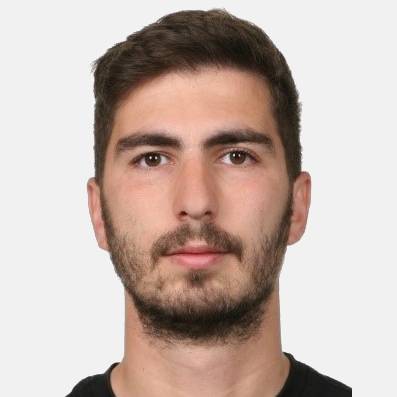 Militsis Nikolaos Marios holds a Diploma of Engineering from the Faculty of Engineering at Aristotle University of Thessaloniki (AUTH). Currently, he serves as a research associate at the Computer Vision and Machine Learning laboratory (CVML) at AUTH. He is also PhD candidate at the Computer Science Department of AUTH. His research activities primarily revolve around exploring and developing innovative approaches using deep learning techniques and computational intelligence methods to address challenges in computer vision tasks.
Militsis Nikolaos Marios holds a Diploma of Engineering from the Faculty of Engineering at Aristotle University of Thessaloniki (AUTH). Currently, he serves as a research associate at the Computer Vision and Machine Learning laboratory (CVML) at AUTH. He is also PhD candidate at the Computer Science Department of AUTH. His research activities primarily revolve around exploring and developing innovative approaches using deep learning techniques and computational intelligence methods to address challenges in computer vision tasks.
Erofili Alexaki (Research Assistant)
 Erofili Alexaki obtained her B.Sc. in Mathematics at Aristotle University of Thessaloniki in 2021 and her M.Sc in Digital Media- Computational Intelligence in 2023. She is currently a research assistant in the Artificial Intelligence and Information Analysis Laboratory in the Department of Informatics at the Aristotle University of Thessaloniki.
Erofili Alexaki obtained her B.Sc. in Mathematics at Aristotle University of Thessaloniki in 2021 and her M.Sc in Digital Media- Computational Intelligence in 2023. She is currently a research assistant in the Artificial Intelligence and Information Analysis Laboratory in the Department of Informatics at the Aristotle University of Thessaloniki.
Dimitris Psarras (Research Assistant)
 Dimitrios Psarras received the B.Sc. degree in Physics from the Aristotle University of Thessaloniki in 2021. Dimitrios is currently a research assistant at the Artificial Intelligence and Information Analysis laboratory, in the Department of Informatics, Aristotle University of Thessaloniki, Greece. His current research interests include the areas of machine learning and computer vision for autonomous systems.
Dimitrios Psarras received the B.Sc. degree in Physics from the Aristotle University of Thessaloniki in 2021. Dimitrios is currently a research assistant at the Artificial Intelligence and Information Analysis laboratory, in the Department of Informatics, Aristotle University of Thessaloniki, Greece. His current research interests include the areas of machine learning and computer vision for autonomous systems.
Matthaios Dimitrios Tzimas (Research Assistant)
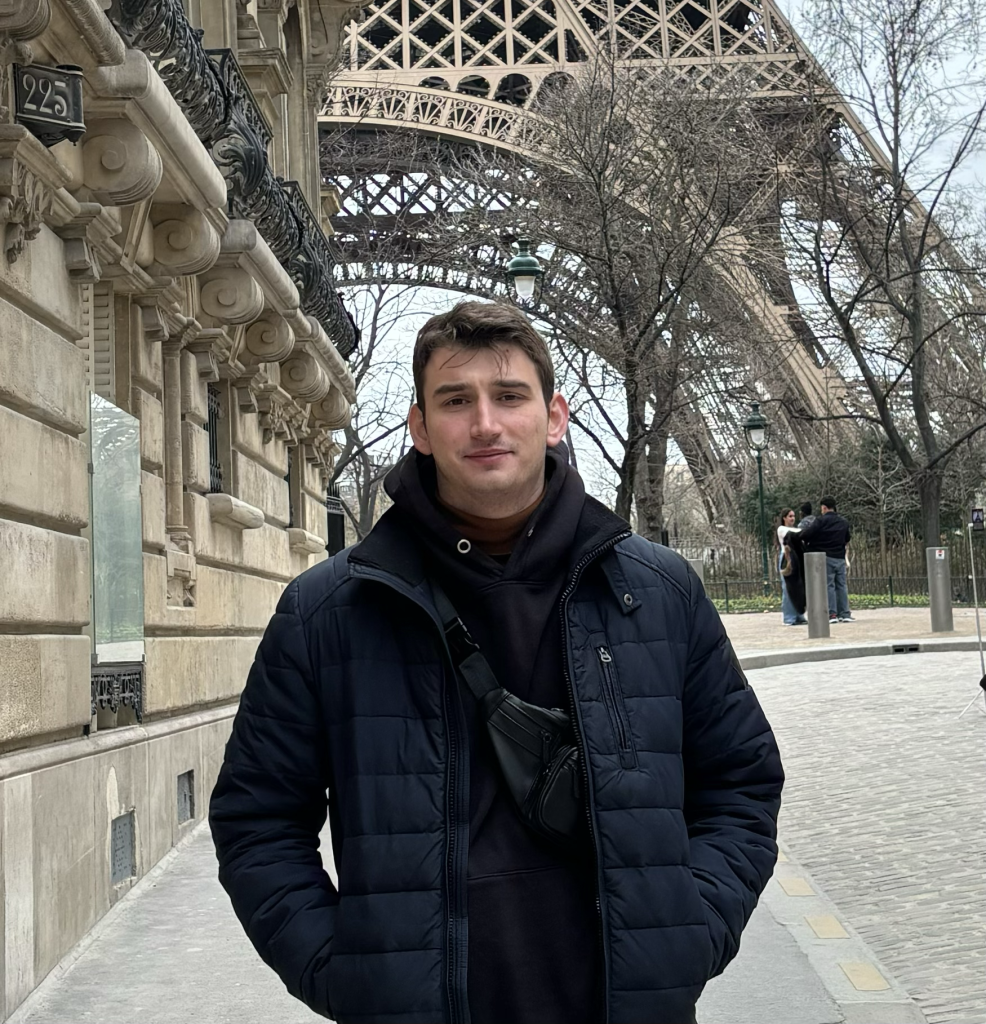 Matthaios Dimitrios Tzimas obtained his B.Sc. in Electrical and computer Engineering in 2023. He is currently a research assistant in the Artificial Intelligence and Information Analysis Laboratory in the Department of Informatics at the Aristotle University of Thessaloniki. His research is centered on applying deep learning techniques to object detection and semantic segmentation in the realm of natural disaster management.
Matthaios Dimitrios Tzimas obtained his B.Sc. in Electrical and computer Engineering in 2023. He is currently a research assistant in the Artificial Intelligence and Information Analysis Laboratory in the Department of Informatics at the Aristotle University of Thessaloniki. His research is centered on applying deep learning techniques to object detection and semantic segmentation in the realm of natural disaster management.
Educational record of Prof. I. Pitas
Prof I. Pitas was Visiting/Adjunct/Honorary Professor/Researcher and lectured at several Universities: University of Toronto (Canada), University of British Columbia (Canada), EPFL (Switzerland), Chinese Academy of Sciences (China), University of Bristol (UK), Tampere University of Technology (Finland), Yonsei University (Korea), Erlangen-Nurnberg University (Germany), National University of Malaysia, Henan University (China). He delivered 129 invited/keynote lectures in prestigious international Conferences and top Universities worldwide. He ran 17 short courses and tutorials on Autonomous Systems, Computer Vision and Machine Learning, most of them in the past 3 years in many countries, e.g., USA, UK, Italy, Finland, Greece, Australia, N. Zealand, Korea, Taiwan, Sri Lanka, Bhutan.

PAST COURSE EDITIONS
From 2018 to 2023 AUTH organized this short course which attracted on average of 40 participants every year. See some of the comments:
2019
Participants: 53, Countries: UK, Germany, Sweden, Norway, Italy, Greece, Croatia, Slovakia.
Registrant comments:
(Anonymous) “… The lectures during the workshops were really good. …”,
(Anonymous) “… Course material was very appealing and perfectly adequate. …”
2022
Participants: 45, Countries: Italy, Austria, China, India, Greece
Registrant comments:
(Anonymous) “…Course was good as I was expecting. I understood well and doubts were cleared too…”
(Anonymous) “…I really liked the fact that every Phd student was supportive and encouraging to make them questions…”
SPONSORS
If you want to be our sponsor, please send an email to Ms. Efi Patmanidou / epatman@csd.auth.gr
SAMPLE COURSE MATERIAL. RELATED LITERATURE
1. Radford, Alec, et al. “Improving language understanding by generative
pre-training.” (2018).
2. Devlin, Jacob, et al. “Bert: Pre-training of deep bidirectional transformers for language understanding.” arXiv preprint arXiv:1810.04805 (2018).
3. Vaswani, Ashish, et al. “Attention is all you need.” Advances in neural
information processing systems 30 (2017).
4. Li, B., Yan, J., Wu, W., Zhu, Z., & Hu, X. (2018). High performance visual
tracking with siamese region proposal network. In Proceedings of the IEEE conference on computer vision and pattern recognition (pp. 8971-8980).
5. Karakostas, I., Mygdalis, V., Tefas, A., & Pitas, I. (2019, September). On
Detecting and Handling target occlusions in Correlation-filter-based 2D
tracking. In 2019 27th European Signal Processing Conference (EUSIPCO) (pp. 1-5).
6. Bertinetto, L., Valmadre, J., Henriques, J. F., Vedaldi, A., & Torr, P. H.
(2016, October). Fully-convolutional siamese networks for object tracking. In European conference on computer vision (pp. 850-865), Springer, Cham.
7. J. Zhuang, J. Yang, L. Gu, N. Dvornek, “ShelfNet for Fast Semantic Segmentation”, In Proceedings of the IEEE International Conference on Computer Vision Workshops, 2019.
8. C. Yu, J. Wang, C. Peng, C. Gao, G. Yu, N. Sang, “ Bisenet: Bilateral
segmentation network forreal-time semantic segmentation”, In
Proceedings of the European conference on computer vision (ECCV), 2018.
9. L.-C. Chen, Y. Zhu, G. Papandreou, F. Schroff, H. Adam, “Encoderdecoder with atrous separable convolution for semantic image segmentation.” In Proceedings of the European Conference on Computer Vision (ECCV), 2018.
10. A. Kendall, Y. Gal, R. Cipolla, “Multi-task learning using uncertainty to
weigh losses for scene geometry and semantics.”, In Proceedings of the IEEE conference on computer vision and pattern recognition (CVPR), 2018.
11. J. Liu, Y. Wang, Y. Li, J. Fu, J. Li, H. Lu, “Collaborative deconvolutional
neural networks for joint depth estimation and semantic segmentation.”, IEEE transactions on neural networks and learning systems, 2018.
12. Redmon, Joseph, et al. “You only look once: Unified, real-time object
detection.” Proceedings of the IEEE conference on computer vision and
pattern recognition, 2016.
13. Ren, Shaoqing, et al. “Faster r-cnn: Towards real-time object detection
with region proposal networks.” Advances in neural information
processing systems 28 (2015).
14. Girshick, Ross. “Fast r-cnn.” Proceedings of the IEEE international
conference on computer vision, 2015.
15. R. Miikkulainen et al. “Evolving deep neural networks.” Artificial
Intelligence in the Age of Neural Networks and Brain Computing.
Academic Press, 2019. 293-312.
USEFUL LINKS
Prof. Ioannis Pitas: https://scholar.google.gr/citations?user=lWmGADwAAAAJ&hl=el
TEMA R&D Project: https://tema-project.eu/
International Artificial Intelligence Doctoral Academy (AIDA): https://www.i-aida.org/
Icarus Research Team: https://icarus.csd.auth.gr/
Laboratory of Artificial Intelligence and Information Analysis: http://www.aiia.csd.auth.gr/
Department of Informatics, Aristotle University of Thessaloniki (AUTH): http://www.csd.auth.gr/en/
Thessaloniki: https://wikitravel.org/en/Thessaloniki
EVALUATION FORM

